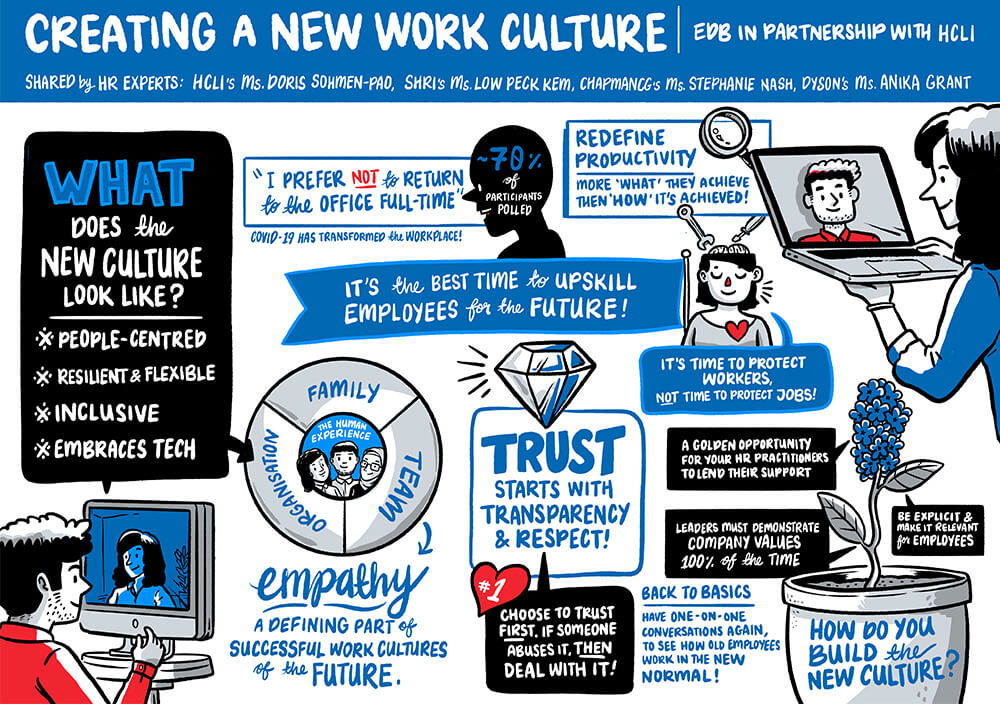On an organisational level, she shares the example of Airbnb Chief Executive Officer Mr Brian Chesky’s empathetic approach, which has been lauded by HR experts. In a recent round of layoffs, Chesky wrote a heartfelt letter to provide clarity on the leadership team’s decision-making processes, and mobilise resources to help departing employees find new jobs. Chesky’s empathy and effort increased trust in and loyalty to Airbnb’s leaders and its brand.
At the team level, empathy is crucial in better supporting your colleagues’ well-being, an urgent need amidst the COVID-19 pandemic. The panel shares a few tips:
- Go back to basics and get to know your teammates again. Take time for one-to-one conversations on motivations, circumstances and well-being. Simply listening and offering moral support remind them they are not alone.
- Next, be creative and intentional in finding ways to connect. As Ms Low points out, “we cannot assume that we simply can’t do certain things anymore!” Ms Low has leveraged technology to host a virtual farewell lunch with her team, and intentionally sets up regular check-in Skype meetings for employees to share updates, ask for support, make decisions or simply have a quick catch-up.
- Be vulnerable. Do not be afraid to share your “unglamorous” side. As we work from home, showing colleagues how we look like when out of the office sets people at ease. Sharing struggles and learnings allows your team to provide mutual support and promote trust.
For a summary of the 3 steps you can take to create a new work culture for COVID-19 and beyond, check out our at-a-glance infographic here!
Trust, trust and more trust
“The culture that is going to win is people-centred, with a high level of trust. When you trust your employees, they will grant you the same level of trust,” says Ms Low. ”We should adopt a trust-by-default stance, and trust that employees will do a good job and deliver”. This is especially important with a remote workforce.
Ms Nash shares her past experience as the Chief People Officer at e-commerce company RedMart. During a challenging business pivot, company leaders fostered trust by communicating information as quickly and transparently as possible. “We had to make difficult decisions, but the key was to treat people with respect, so people would weather the storm with us. As a result, we lost a minimal number of people, and the loyalty that came out of it was greater than ever,” she says.
Trust is fostered through human-centred leadership. HCLI explains that this involves being compassionate towards your teammates by giving honest feedback and genuinely trying to improve their well-being. This empowers everyone to trust each other in pursuing shared goals.
That said, the flipside of trust is accountability. One participant says, “When trust is given, employees must at the same time be held accountable.”
Ms Nash agrees. When employees’ commitments change due to circumstances at home, “they and their managers need to have accountability conversations about performance and development.” Without the ability to conduct face-to-face reviews, adds Ms Grant, we need to become outcome-focused in assessing productivity and performance.
This, of course, requires managers to be open and transparent — even when they don’t have all the answers.








